第63章 THE JACOBINS BECOME INQUISITORS(1)
The temper animating Hay's "Jacobins"formed a new and really formidable danger which menaced Lincoln at the close of 1861.
But had he been anything of an opportunist,it would have offered him an unrivaled opportunity.For a leader who sought personal power,this raging savagery,with its triple alliance of an organized political machine,a devoted fanaticism,and the war fury,was a chance in ten thousand.It led to his door the steed of militarism,shod and bridled,champing upon the bit,and invited him to leap into the saddle.Ten words of acquiescence in the program of the Jacobins,and the dreaded role of the man on horseback was his to command.
The fallacy that politics are primarily intellectual decisions upon stated issues,the going forth of the popular mind to decide between programs presented to it by circumstances,receives a brilliant refutation in the course of the powerful minority that was concentrating around the three great "Jacobins."The subjective side of politics,also the temperamental side,here found expression.Statecraft is an art;creative statesmen are like other artists.Just as the painter or the poet,seizing upon old subjects,uses them as outlets for his particular temper,his particular emotion,and as the temper,the emotion are what counts in his work,so with statesmen,with Lincoln on the one hand,with Chandler at the opposite extreme.
The Jacobins stood first of all for the sudden reaction of bold fierce natures from a long political repression.They had fought their way to leadership as captains of an opposition.
They were artists who had been denied an opportunity of expression.By a sudden turn of fortune,it had seemed to come within their grasp.Temperamentally they were fighters.
Battle for them was an end in itself.The thought of Conquest sang to them like the morning stars.Had they been literary men,their favorite poetry would have been the sacking of Troy town.Furthermore,they were intensely provincial.Undoubted as was their courage,they had also the valor of ignorance.
They had the provincial's disdain for the other side of the horizon,his unbounded confidence in his ability to whip all creation.Chandler,scornfully brushing aside a possible foreign war,typified their mood.
And in quiet veto of all their hopes rose against them the apparently easy-going,the smiling,story-telling,unrevengeful,new man at the White House.It is not to be wondered that they spent the summer laboring to build up a party against him,that they turned eagerly to the new session of Congress,hoping to consolidate a faction opposed to Lincoln.
His second message [1],though without a word of obvious defiance,set him squarely against them on all their vital contentions.The winter of 1861-1862is the strangest period of Lincoln's career.Although the two phases of him,the outer and the inner,were,in point of fact,moving rapidly toward their point of fusion,apparently they were further away than ever before.Outwardly,his most conspicuous vacillations were in this winter and in the following spring.Never before or after did he allow himself to be overshadowed so darkly by his advisers in all the concerns of action.In amazing contrast,in all the concerns of thought,he was never more entirely himself.The second message,prepared when the country rang with what seemed to be a general frenzy against him,did not give ground one inch.This was all the more notable because his Secretary of War had tried to force his hand.Cameron had the reputation of being about the most astute politician in America.Few people attributed to him the embarrassment of principles.And Cameron,in the late autumn,after closely observing the drift of things,determined that Fremont had hit it off correctly,that the crafty thing to do was to come out for Abolition as a war policy.In a word,he decided to go over to the Jacobins.He put into his annual report a recommendation of Chandler's plan for organizing an army of freed slaves and sending it against the Confederacy.Advanced copies of this report had been sent to the press before Lincoln knew of it.He peremptorily ordered their recall,and the exclusion of this suggestion from the text of the report.[2]
On the heels of this refusal to concede to Chandler one of his cherished schemes,the second message was sent to Congress.